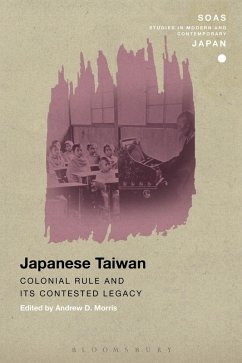Colonial agents worked for fifty years to make a Japanese Taiwan, using technology, culture, statistics, trade, and modern ideologies to remake their new territory according to evolving ideas of Japanese empire. Since the end of the Pacific War, this project has been remembered, imagined, nostalgized, erased, commodified, manipulated, idealized and condemned by different sectors of Taiwan's population.
The volume covers a range of topics, including colonial-era photography, exploration, postwar deportation, sport, film, media, economic planning, contemporary Japanese influences on Taiwanese popular culture, and recent nostalgia for and misunderstandings about the colonial era.
Japanese Taiwan provides an interdisciplinary perspective on these related processes of colonization and decolonization, explaining how the memories, scars and traumas of the colonial era have been utilized during the postwar period. It provides a unique critique of the 'Japaneseness' of the erstwhile Chinese Taiwan, thus bringing new scholarship to bear on problems in contemporary East Asian politics.
The volume covers a range of topics, including colonial-era photography, exploration, postwar deportation, sport, film, media, economic planning, contemporary Japanese influences on Taiwanese popular culture, and recent nostalgia for and misunderstandings about the colonial era.
Japanese Taiwan provides an interdisciplinary perspective on these related processes of colonization and decolonization, explaining how the memories, scars and traumas of the colonial era have been utilized during the postwar period. It provides a unique critique of the 'Japaneseness' of the erstwhile Chinese Taiwan, thus bringing new scholarship to bear on problems in contemporary East Asian politics.


